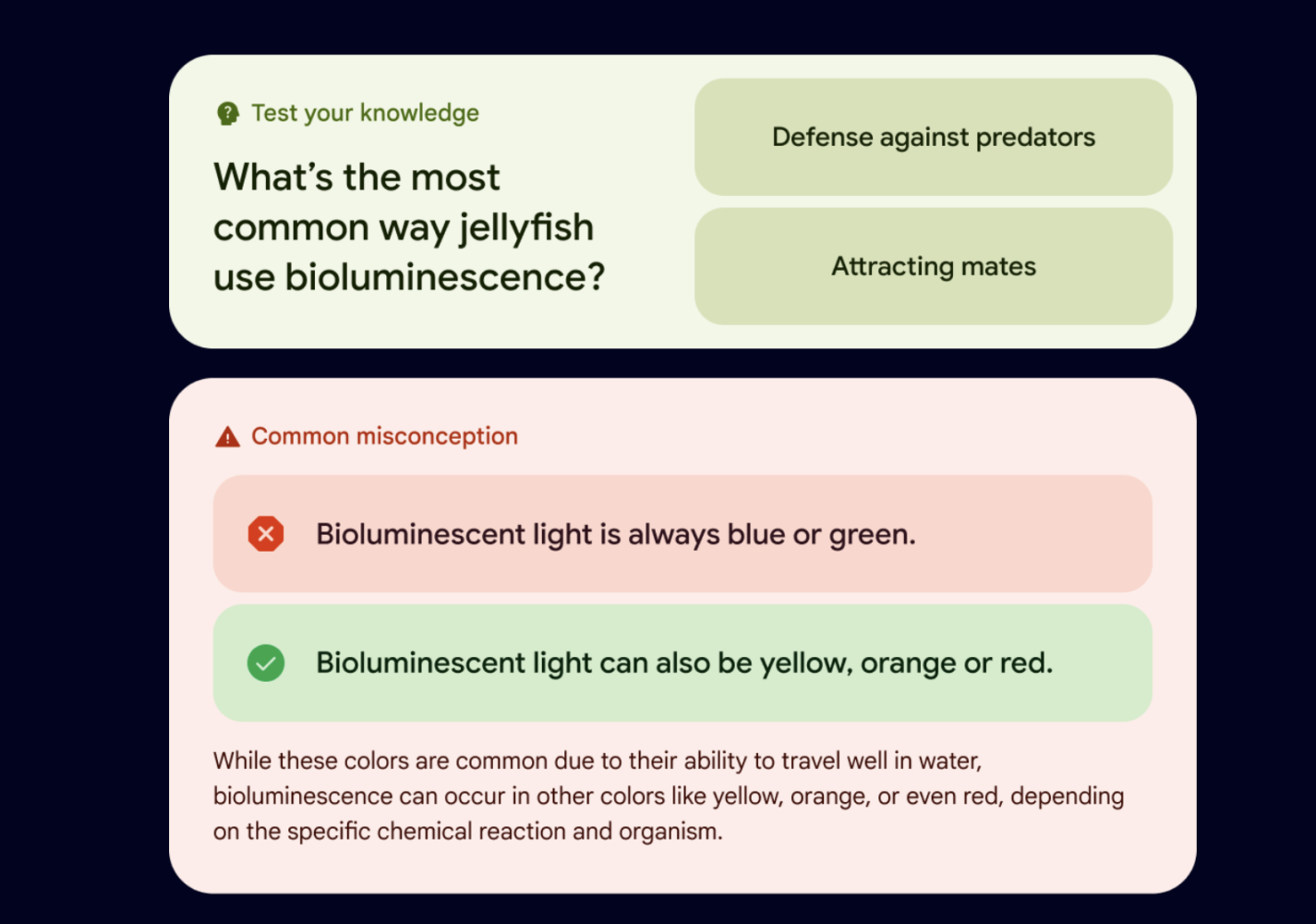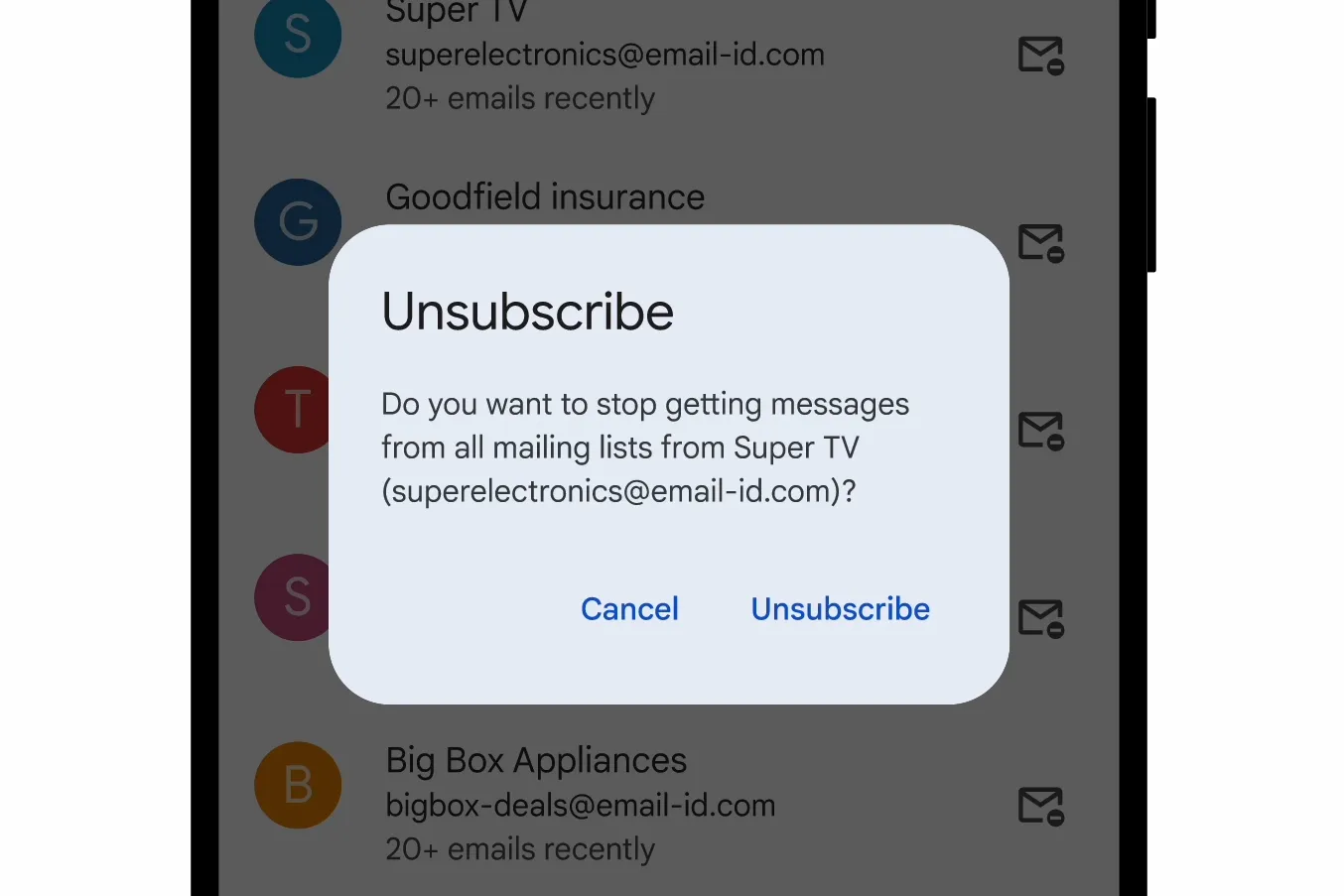Google, the tech giant synonymous with search, has embarked on a new quest: to revolutionize learning with the power of artificial intelligence. Their latest offering, “Learn About AI,” is an ambitious attempt to streamline the learning process and make knowledge more accessible to all. While the concept is undeniably intriguing and the initial execution shows promise, a closer examination reveals a tool that, in its current state, feels more like a work in progress than a finished product.
Learn About AI
The premise behind Learn About AI is deceptively simple. You type in a topic you’re interested in learning about, and Google’s AI, powered by the Gemini large language model (LLM), takes over. It scours the vast expanse of the internet, gathers relevant information, and synthesizes it into a digestible format. This includes a concise summary of the topic, a breakdown of key subtopics, a curated selection of multimedia elements, and links to source materials. It’s a compelling proposition, especially for those who find the sheer volume of information on the internet overwhelming and intimidating.
However, my experience with Learn About AI has been a mixed bag. While it excels at providing a basic overview of a topic, it often falters when it comes to depth, accuracy, and consistency. For broad, well-established topics, the summaries are generally adequate, but they often lack the nuance and depth that one might expect from a truly comprehensive learning resource. For more niche or specialized subjects, the information can be inaccurate or even misleading, with the AI occasionally misinterpreting source materials or presenting information out of context.

A Closer Look at the User Experience
One of the tool’s undeniable strengths is its presentation. The user interface is clean, intuitive, and visually appealing, making it easy to navigate through the information. The inclusion of multimedia elements, such as images and videos, enhances the learning experience and helps to break up the monotony of text. However, even here, inconsistencies emerge. Some of the images and videos seem randomly selected, bearing only a tenuous connection to the topic at hand. This lack of curation can be distracting and detract from the overall learning experience.
The source selection process is another area where Learn About AI falls short. While the tool claims to prioritize reliable and authoritative sources, the actual selection often feels haphazard and inconsistent. Some sources are indeed highly relevant and credible, while others are obscure, outdated, or only tangentially related to the topic. This inconsistency undermines the tool’s credibility and makes it difficult for users to assess the accuracy and reliability of the information presented.
Perhaps the most frustrating aspect of Learn About AI, at least in its current iteration, is its lack of advanced features and customization options. The “Simplify” and “Go Deeper” options, for instance, are essentially just re-prompts of the original query, offering little in the way of genuine customization. There’s no option to save conversations, personalize the learning experience based on individual preferences, or integrate with other Google AI tools like NotebookLM. These limitations make the tool feel more like a proof of concept than a fully realized product, leaving users wanting more.
The Challenges of AI-Powered Learning
While Learn About AI undoubtedly represents a step in the right direction, it also highlights the challenges inherent in developing truly effective AI-powered learning tools. One of the key challenges is ensuring accuracy and reliability. LLMs like Gemini are trained on massive datasets of text and code, but they can still struggle to understand the nuances of human language and the complexities of real-world knowledge. This can lead to inaccuracies, misinterpretations, and biases in the information presented.
Another challenge is personalization. Every learner is different, with unique learning styles, preferences, and goals. An effective AI-powered learning tool needs to be able to adapt to these individual needs, providing customized learning paths and resources that cater to each user’s specific requirements. Learn About AI, in its current form, falls short in this regard, offering a one-size-fits-all approach that may not be suitable for all learners.

Furthermore, AI-powered learning tools need to be able to strike a balance between guidance and autonomy. While AI can be incredibly helpful in providing structure, suggesting resources, and offering feedback, it’s important that learners retain control over their learning journey. They need to be able to explore topics at their own pace, pursue their own interests, and develop their own critical thinking skills. Learn About AI, with its limited customization options and lack of interactivity, can sometimes feel overly prescriptive, potentially hindering the development of independent learning skills.
The Potential of AI in Education
Despite the challenges and limitations, the potential of AI in education is undeniable. AI-powered tools have the potential to personalize learning, provide individualized feedback, and make education more accessible to all. Imagine a future where AI tutors can adapt to each student’s learning style, providing customized lessons and support that cater to their individual needs. AI could also help to identify and address learning gaps, provide real-time feedback on assignments, and even create personalized learning plans based on individual strengths and weaknesses.
AI could also play a crucial role in making education more accessible to underserved populations. For students in remote areas or those with disabilities, AI-powered tools could provide access to quality education that might otherwise be unavailable. AI could also help to break down language barriers, providing real-time translation and interpretation services that enable students from different linguistic backgrounds to learn together.
Moreover, AI could help to address the growing issue of teacher burnout by automating repetitive tasks, such as grading and providing feedback. This would free up teachers to focus on what they do best: inspiring, motivating, and guiding their students.

The Road Ahead for Learn About AI
While Learn About AI may not be a perfect tool in its current iteration, it represents a significant step towards realizing the potential of AI in education. With continued development and refinement, it could become a truly valuable resource for learners of all ages and backgrounds. Here are some key areas where Google could focus its efforts to improve Learn About AI:
- Enhanced Accuracy and Reliability: Invest in improving the accuracy and reliability of the information presented. This could involve refining the LLM’s training data, developing more sophisticated algorithms for source selection, and implementing human oversight to ensure quality control.
- Increased Personalization: Offer more customization options to cater to individual learning styles and preferences. This could include allowing users to choose different types of summaries, create personalized learning paths, and set their own learning goals.
- Seamless Integration with Other Tools: Integrate Learn About AI with other Google AI tools, such as NotebookLM, to create a more cohesive and powerful learning ecosystem.
- Enhanced Interactivity: Introduce more interactive elements, such as quizzes, simulations, and collaborative learning activities, to engage users and promote active learning.
- Expanded Content Coverage: Expand the tool’s content coverage to include a wider range of topics and disciplines, ensuring that it can cater to the diverse needs of learners across all subjects.
By addressing these areas, Google can transform Learn About AI from a promising but flawed experiment into a truly transformative tool that empowers learners to explore the world of knowledge with confidence and curiosity.
The Future of Learning: A Collaborative Approach
Ultimately, the future of learning is likely to involve a collaborative approach, where AI and human educators work together to create engaging and effective learning experiences. AI can provide the tools and resources, but it’s the human element – the passion, creativity, and empathy of educators – that truly inspires and motivates learners. By embracing this collaborative approach, we can harness the power of AI to create a future where learning is personalized, accessible, and empowering for all.





